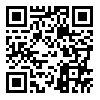مجله رویش روانشناسی از دادن گواهیهای کاغذی معذور است. لطفا تقاضا نکنید. همه گواهی ها در صفحه شخصی کاربران موجود است.
year 13, Issue 3 (spring 2024 2024)
Rooyesh 2024, 13(3): 21-32 |
Back to browse issues page
Download citation:
BibTeX | RIS | EndNote | Medlars | ProCite | Reference Manager | RefWorks
Send citation to:



BibTeX | RIS | EndNote | Medlars | ProCite | Reference Manager | RefWorks
Send citation to:
Karimi E, Hashemi Nosratabad T, Khanjani Z. (2024). Structural Relationships of Adverse Childhood Experiences with Symptoms of Narcissistic Personality Disorder: The Mediating Role of Early Maladaptive Schemas. Rooyesh. 13(3), 21-32.
URL: http://frooyesh.ir/article-1-4999-en.html
URL: http://frooyesh.ir/article-1-4999-en.html
1- M.A. in General Psychology, Department of Psychology, Faculty of Education and Psychology, University of Tabriz, Tabriz, Iran. , ekarimii75@gmail.com
2- Professor, Department of Psychology, Faculty of Education and Psychology, University of Tabriz, Tabriz, Iran.
2- Professor, Department of Psychology, Faculty of Education and Psychology, University of Tabriz, Tabriz, Iran.
Abstract: (1928 Views)
The present study aimed to determine the structural relationships between adverse childhood experiences and the symptoms of narcissistic personality disorder, with the mediating role of early maladaptive schemas. The descriptive-correlation research was based on path analysis. The statistical population of this research included the students of the University of Tabriz in 2022-2023 (24000 people) and the statistical sample included 354 people who were selected by multi-stage cluster sampling method. To measure the variables, the childhood trauma questionnaire (CTQ, Bernstein et al., 2003), narcissistic personality inventory (NPI-16, Ames et al., 2006), and Young Schema Short Form Questionnaire (YSQ-SF, Young, 1999) were used and the path analysis method was used to analyze the data. Data analysis showed that sexual abuse had a direct effect on narcissistic personality disorder and an indirect effect through the mediation of impaired limits and Impaired autonomy and performance (p<0.05). Also, the results indicated that sexual abuse, emotional neglect, and physical neglect had a direct effect on Disconnection and rejection, and sexual abuse and physical neglect had a direct effect on Other-directedness (p<0.05). The results showed that the model had a good fit. Based on these findings, it can be stated that adverse childhood experiences through the mediation of early maladaptive schemas can predict changes in narcissistic personality disorder and explain its occurrence.
Keywords: Adverse Childhood Experiences, Early Maladaptive Schemas, Narcissistic Personality Disorder.
Type of Article: Research |
Subject:
Clinical Psychology
Received: 2023/12/2 | Accepted: 2024/01/6 | ePublished: 2024/06/23
Received: 2023/12/2 | Accepted: 2024/01/6 | ePublished: 2024/06/23
Send email to the article author
| Rights and permissions | |
 |
This work is licensed under a Creative Commons Attribution-NonCommercial 4.0 International License. |





